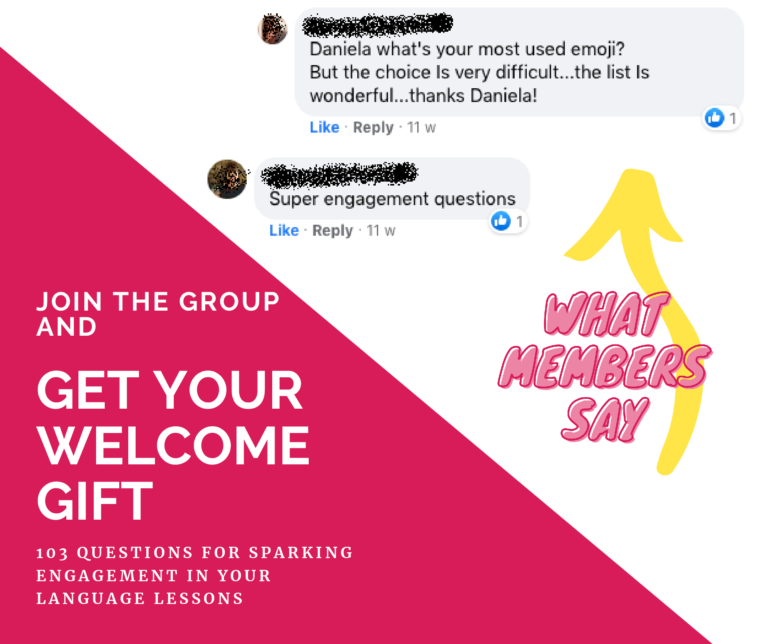
Let’s say you want to give your language lessons a twist. Let’s say you would like to get your students engaged on a different level and to see them really motivated. Then I say: drama can help! But, where to start? If you are wondering how to start teaching languages through drama, in this post I’ll give you three ideas you can implement, even if you don’t have experience in drama teaching.
I picked the following three projects because, in my view, they give a simple answer to how to start teaching languages through drama without feeling overwhelmed or confused.
Teaching English through drama as well as teaching any other language through drama should be always a pleasure, rather than a source of frustration! Am I right? J
Here are three types of projects you can easily design and implement in your classroom.
#1 Thematic workshops based on drama
Thematic workshops focus on a specific conversational topic (e.g. hobbies and free time, food, global warming, etc.). This type of project brings a conversational topic alive through a story. The students will be involved in the storytelling, they will play specific roles in the story and will decide on the storyline development, too.
Usually these workshops can last a few hours (2 hours, up to 6 hours). The goal is to explore the vocabulary, communicative functions and to consolidate the grammar related to a conversational topic.
I don’t recommend to choose the grammar itself as a topic. Pick a proper conversational topic, instead. This could be something you’ve worked on already in the classroom and that you would like your students to approach in a different way.
#2 Intensive, short courses based on drama
These are similar to the thematic workshops, although they go deeper into teaching new pieces of grammar.
Usually they last a few whole days. Ideally, consecutive days. The intensive courses held over the weekends are a good compromise for those independent teachers wishing to offer something new and engaging to their students.
Remember: drama is a powerful experiential training experience. This makes drama the perfect training offer both for companies, schools and CLIL teachers.
Over the few days the course lasts, the participants get involved in games and drama activities to bring to life characters and to unfold a story. Thanks to the guidelines the teacher will give them, they will be able to create a story. The story is the bridge to practising the specific aspects of the target language, according to the learning goals set by the teacher.
#3 Masterclasses based on drama
Masterclasses are classes you teach experienced, advanced students. Just like the thematic workshops, they last a few hours only. During a masterclass you cover a specific topic. Compared to the thematic workshops, though, masterclasses can be focused on the grammar. That’s because you would be teaching advanced students.
For example, you may want to propose a masterclass in the sounds of the target language, in the use of the past tenses, or in the use of idioms related to a specific topic (e.g. technology, relationships, etc.).
For some teachers this is the easiest step into how to start teaching languages through drama.
Wrapping up
I can bet the brainstorming has already begun in your head! The good thing about giving yourself a small goal is that it helps generating ideas. Choose the type of project that better resonate to you and allow yourself to give drama a go. It’s going to be fun! Good luck!
Want more support?
Join the Facebook group Independent Language Teachers Collective to get daily advice, tons of free training and to branch out with other independent language teachers like you!
ALSO…
Available only for the Collective members: free list 103 question for sparking engagement in your language lessons.
This is what members say about the freebie:

Join in the Collective and grab your welcome gift:


